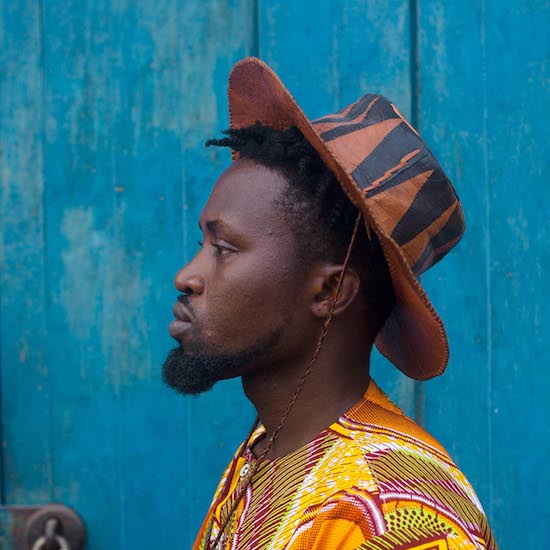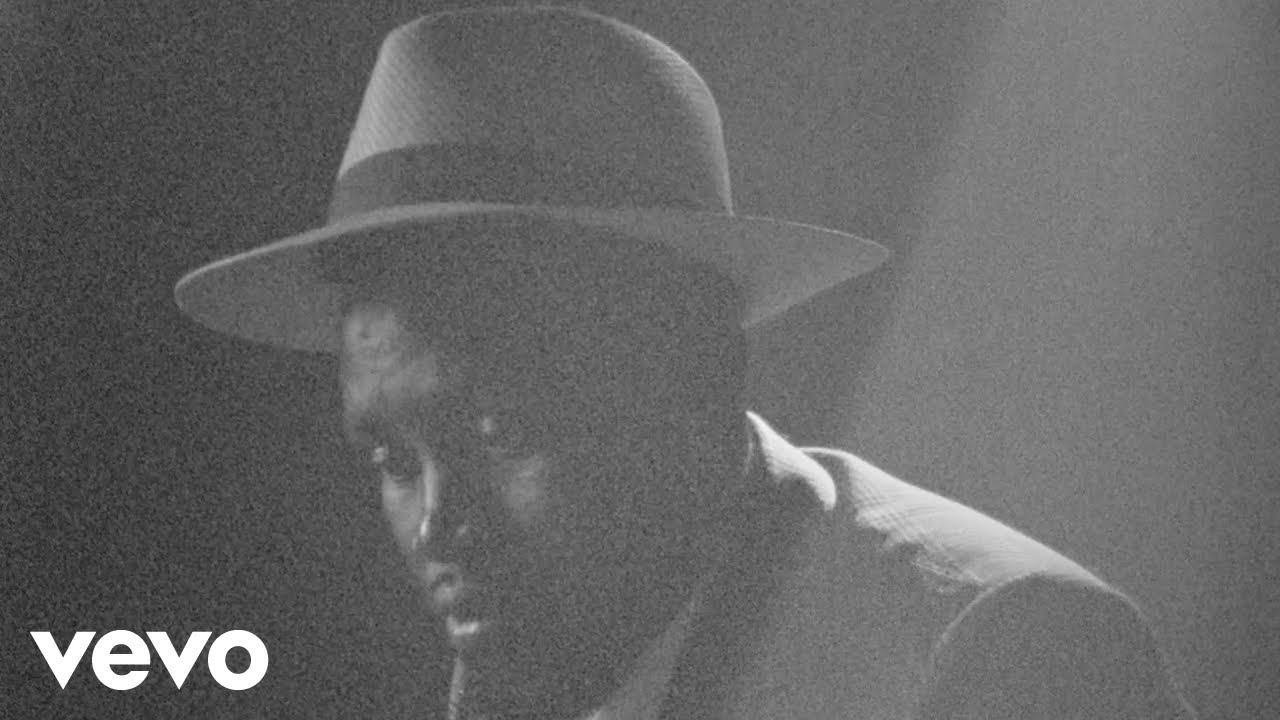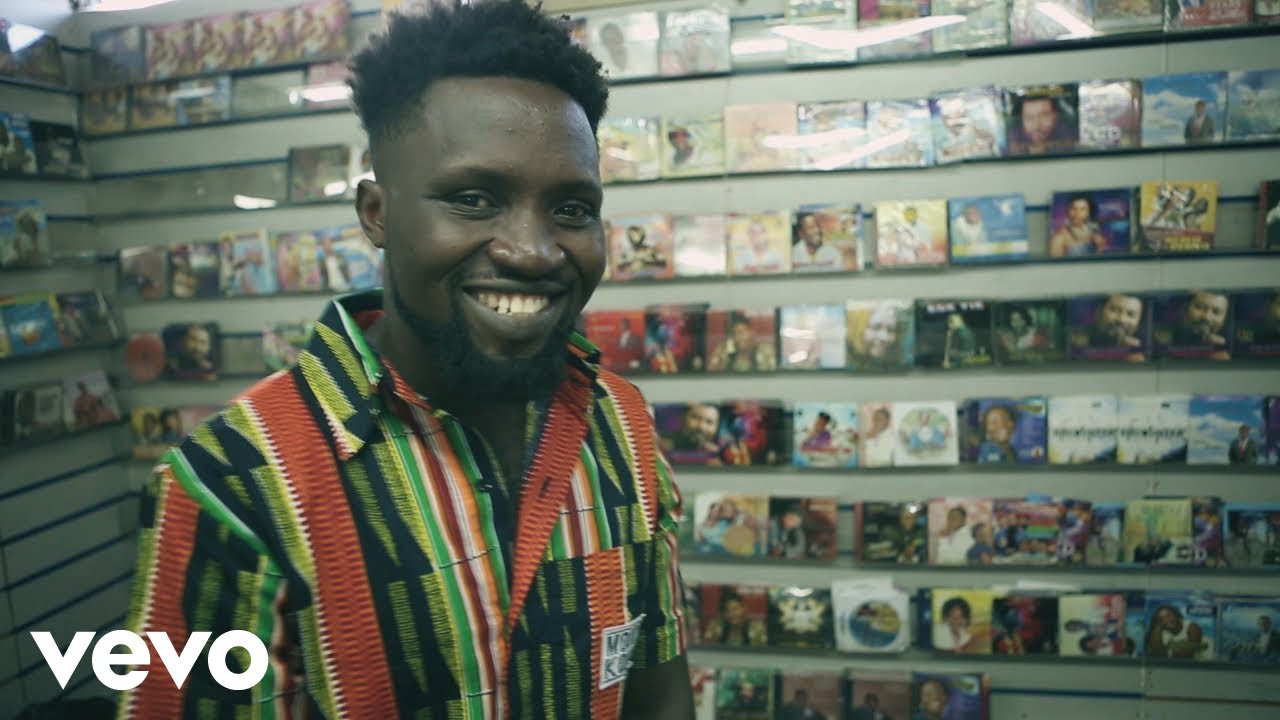Over the last couple of years, we have seen Afro swing (a mix of Afrobeats, dancehall and UK rap) take over our airwaves, with the likes of J Hus leading the vanguard; this genre being the product of first generation British youth, who have grown up in Afro-Caribbean households. But even though we have many stars in the UK who are putting their own twist on Afrobeats, it is less common to hear the process in reverse: an African artist who chooses to combine their music, with UK club sounds. That was until Bryte came along.
Born and raised in the Abeka neighbourhood of Accra, Ghana, the young artist has been recording music since 2005 and was influenced by fellow countrymen such as Obrafour, Reggie Rockstone and Daddy Lumba. As he crafted his own style, he would use azonto rhythms, but then layer them with hard-hitting raps.
His grind was long, but in 2012 he won the Bavaria Big competition (a big deal televised talent show in Ghana) which served as his breakout moment and allowed him to record his debut video ‘Nadia Number’. Following on from this, he linked up with African producer Gafacci and through him he later met UK beatmaker Mina; who ended up recording his debut album and label owner Ahad at More Time Records, who recently released the project. All of these components came together in a perfect African storm, which travelled over to the UK via More Time Records and is currently killing it on the underground bass scene.
How does it feel to finally have your debut album out?
Bryte: It feels great. I’m really happy about it – the reception it has received has been really exciting. I’m looking forward to seeing it take me to new places and letting the world listen to the rest of my music.
Let’s talk about the recording process. The first song is ‘Je m’apelle Bryte’ produced by Gafacci; who also produced your underground club hit ‘I Like Your Girlfriend’. Talk about how that musical relationship came about?
B: It started way back in 2013, when I had a guy called Seven who wanted to manage me and Gafacci was working in his studio. We have been friends for a very long time, I feel like we are brothers now.
Over the summer the first single released from the project was ‘Mama Dey Party’, produced by Mina; how did she get involved with the album? I heard she played a big part.
B: I’ve known Mina for almost two years now. We got to meet through Gafacci, and since then we’ve been working closely together. We have ‘Make Money’, which came out last year, ‘Mama Dey Party’ which came out this past summer and then an upcoming track called ‘One Leg’ which will be out later this year. Mina was heavily involved in the recording of all the vocals on my album; when she was in Ghana we hit the studio and she took the vocals of all the songs that I recorded; the collaboration between us worked really well.
Nice one. So your most recent video from the tape is ‘Hustler’. The song and video are out of this world, what was the concept behind them?
B: With this video we didn’t want to do anything that was just normal – we wanted to do something different. So the team came up with the concept and when you watch the visuals, you can see that they have an old school vibe. You can see with the suit that I was wearing, that was the look we were going for. The whole team came up with the concept: the video was produced by Ahad Elley, directed by Angela Stephenson and I was styled by Lucy Isobel. This was all shot over the summer, during my time in London.
Wicked. I think my favourite song from the album is ‘Pressure’, which talks about women getting into prostitution because of the hardships of poverty. What incident sparked this track?
B: For me, ‘Pressure’ is really touching, because it talks about the hardships that people go through – especially when it comes to women. People from the north of the country come down to the south, especially Accra, the capital, to find work. I’ve seen this many times myself. They want to make a living here; some who come do get work, but there are many who don’t. The people who don’t find employment need to survive and use any way they can to achieve this. Many end up doing things that they don’t want to do: some go into prostitution, others have to work so hard for such bad wages that they can end up committing criminal acts to make ends meet. I know people who have been through this. This is why ‘Pressure’ is so real for me, because I can relate to the situations I’m talking about. When you know someone who is going through this and you put it in a song, you really feel it from the heart. I really love the song.
What do you think causes people to take this path? Could it be the politics in Ghana that is allowing this socio-economic deprivation to occur?
B: I think it has to do with the hardships in the northern part of Ghana. Most of the money and the businesses are primarily in Accra and that includes the banks. Many people living in the north are farmers but are not even earning enough money in order to feed themselves. That is bad enough but when their friends and neighbours visit Accra, they often come back with the latest phone or whatever, creating the idea that all of the wealth is in the major cities. But when they come down themselves, many realise there is not as much opportunity as they had assumed. Some do make it, but others don’t and those are the individuals who can end up doing things that they don’t want to do because of the pressure of poverty.
Did you experience poverty when you were younger? What was your childhood like?
B: Where I come from is not a rosy place. It wasn’t that good, because many times I wasn’t able to eat three times a day; on some occasions it would be twice or even just once. Also my dad passed away when I was very young meaning my mum had to take care of five kids all by herself. There was no help from any aunties or uncles. She had to work really hard to take care of all of us. I can relate to people who hustle on the street and people who are going through hard times with no help and this is due to all of the experience I went through as a child.
How would you describe life in Accra to someone who’s never been before?
B: It is really lovely. There is a lot going on in terms of music, nightlife and just the general development of our infrastructure in the city. There is a lot going on in our music scene especially, with a good amount of dance music, such as afrobeats and highlife, for visitors to enjoy. Dancehall is also very big in Ghana not to mention electronic music – parts of Accra such as Osu have an EDM scene that is really bubbling at the moment.
Talk about your first big break in music – winning the 2012 Bavaria Big – which entail got you a record deal with Africa Unsigned and lead to your debut video ‘Nadia Number’.
B: The first day I recorded a song in the studio was back in 2005, on the 10 June, I think it was on a Friday. In 2012 there was an ad on TV for a talent hunt called Bavaria Big but really and truly I didn’t want to enter it but my friends advised me to go for it, because we had been going to rap battles and hip-hop competitions for ages. They said, just try this and see, but I didn’t believe in it. I thought it would probably be rigged and not matter if you were any good or not.
I wasn’t going to go but on the day they really pushed me. At the competition there were thousands of people. From that huge group, they were only going to select ten musicians to go through to the next round. I performed and was one of the ten selected. Then they whittled the numbers down to three people, and I was still in. But then they said we could only take two people to the next round and I wasn’t in the final pair. The crowd didn’t like this. They disagreed with the decision and all shouted together that Bryte has to go to the next round, but the judges wouldn’t budge.
After the event I was travelling home when someone from the competition called me and said they watched the video again and decided that I should be in the final round. This really charged me up and when I did my performance in the final, I really killed it; everyone was chanting my name and thankfully I won.
I’d say with your earlier stuff, most of it is afrobeats music, but with your recent songs, I hear UK funky and bassline sounds – what inspired you to mix African and UK styles together?
B: Getting in touch with people like Mina, Ahad and More Time records was a great introduction to the UK club sounds that I went onto use. It was really my kind of vibe you know. So when I came to the UK, I got the chance to meet producers like DJ Polo, The Busy Twist and Max Le Daron. I asked them all to send me beats and everything they sent me, I loved. So I thought to myself, why not do something different from what everyone else is doing.
You also recently performed at Nyege Nyege in Uganda – I watched your show and it looked absolutely crazy – how was the experience for you?
B: Nyege Nyege is the first festival that I’ve been to in Africa. I just couldn’t believe what I was seeing. When I first heard about it, I thought it was just going to be a normal festival, but when I went there it was mad. There were so many people, who came from different walks of life. Everyone just went there to have fun and dance by the river Nile. I also got the chance to do Boiler Room there, which was an amazing experience. Whilst I was there I met beat makers from Uganda, South Africa, and Kenya who I managed to collaborate with and we made some tracks which will be on my next album.
Do you have much planned for the future?
B: I have some tour dates booked for January, so I will be coming back to Europe then and in the meantime I will be working on some projects here in Ghana, which will be out soon. The first project will be called Go To School, and it is a project which is aimed at school children; even if they are only playing football or doing music I think education is key. I have also started working on my next album and I have four songs already, so at the moment it’s just work work work work.
To Good For Your Liking by Bryte is out now




